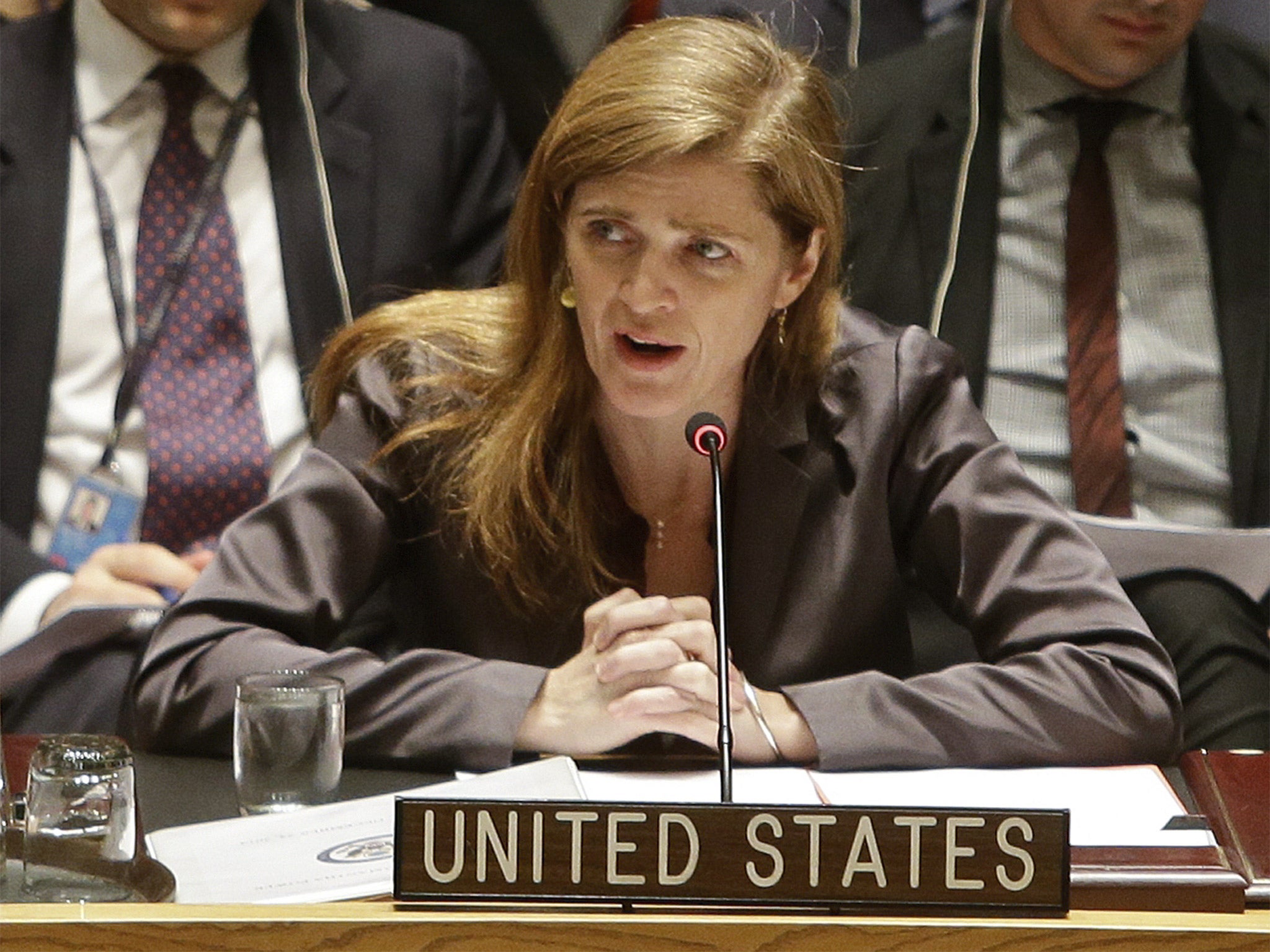UN rejects Palestinian resolution to end Israel's occupation within three years
Proposal called for statehood for Palestine within three years

Your support helps us to tell the story
From reproductive rights to climate change to Big Tech, The Independent is on the ground when the story is developing. Whether it's investigating the financials of Elon Musk's pro-Trump PAC or producing our latest documentary, 'The A Word', which shines a light on the American women fighting for reproductive rights, we know how important it is to parse out the facts from the messaging.
At such a critical moment in US history, we need reporters on the ground. Your donation allows us to keep sending journalists to speak to both sides of the story.
The Independent is trusted by Americans across the entire political spectrum. And unlike many other quality news outlets, we choose not to lock Americans out of our reporting and analysis with paywalls. We believe quality journalism should be available to everyone, paid for by those who can afford it.
Your support makes all the difference.The dreams of Palestinians to secure statehood and end the Israeli occupation of Palestinian territory have been delivered a resounding blow after the UN rejected a resolution that sought to achieve such goals within three years.
The UN Security Council on Tuesday evening voted against the plan, introduced by Jordan, which called for a peace deal with Israel within a year and an end of the Israeli occupation of Palestinian territories by the end of 2017.
The proposal required nine out of fifteen votes at the council. In the end it secured just eight, along with two “no” votes and five abstentions, including that of Britain.
“We had hoped that the Security Council will today adopt the draft Arab resolution because the council bears both the legal and moral responsibilities to resolve the Israeli-Palestinian conflict,” said Jordan’s UN Ambassador, Dina Kawar, according to Reuters.
Saeb Erekat, the chief Palestinian negotiator, said in a statement on Tuesday night: "We presented a resolution that is fully in line with international law, and which recalls several previously approved resolutions by the United Nations."
He added: "Although the majority of the Security Council voted in favor of the resolution, once again, certain countries continue to ensure impunity to the Israeli occupation and its severe international law violations by not voting in favor of the resolution."
The US, which many perceive as Israel’s most loyal ally, reiterated its opposition to the resolution on Tuesday and voted “no”, along with Australia. It has insisted on a negotiated peace agreement between Israel and the Palestinians, not an imposed timetable.

Britain had also said it did not support the measure. The UK’s UN Ambassador, Mark Lyall Grant had indicated Britain had issues with some of the language in the document.
After the vote, Mr Lyall Grant claimed on social media there was much in the draft resolution that Britain supported. “The UK would like to work with partners to revisit idea of parameters resolution on the Middle East ," he said.
Palestinian officials said the resolution called for a return to territorial lines that existed before Israel captured the West Bank, East Jerusalem and the Gaza Strip in the 1967 Middle East war. An earlier Palestinian draft called for Jerusalem to be the shared capital of Israel and a Palestinian state, but the final proposal reverted to a harder line, saying only that East Jerusalem will be the capital of Palestine.
Israel’s Prime Minister had said on Monday that if the UN did not reject the resolution, Israel would. “We expect the entire international community, at least its responsible members, to strongly oppose this dictate to the UN and the Security Council. What we need is direct negotiations and not dictated terms,” he said.
The US had also condemned the measure. A spokesman for the State Department said the deadlines imposed by the measure would hamper negotiations rather than help. He said the US also believed the measure failed to take account of Israel’s security concerns. Israel has said its eastern border would be indefensible if it withdrew completely from the West Bank.
The US’s Ambassador to the UN, Samantha Power, defended her position against the draft in a speech to the 15-nation council. She said the proposal was a “staged confrontation”.
“The United States every day searches for new ways to take constructive steps to support the parties in making progress toward achieving a negotiated settlement,” she said. “The resolution put before us today is not one of those constructive steps. This text addresses the concerns of only one side.”
On Sunday, US Secretary of State John Kerry spoke on Sunday with Palestinian President Mahmoud Abbas in an attempt to delay the submission of a Palestinian resolution. Mr Abbas told Mr Kerry that he was determined to go ahead.
The Palestinians, frustrated by the lack of progress on peace talks, have sought to internationalise the issue by seeking UN membership and recognition of statehood via membership in international organisations, said the Associated Press.
But diplomats have said the US did not want a resolution on the Israeli-Palestinian issue voted on before Israel’s election in March.
Asked why his government was pushing ahead with the vote on the resolution, Palestinian UN Observer Riyad Mansour, said: “If one party decides for whatever reason that they do not want to go along with this massive support by the international community to find a just solution to this conflict, to try to save the two-state solution….then it is not for lack of giving time as Arabs, it is not a lack of flexibility.”
Ahead of the vote, a number of pro-Palestinian activists had said they did not believe the resolution would pass.
However, John Quigley, a professor of law Ohio State University and the author of several books on Palestinian statehood including Apartheid Outside Africa: The Case of Israel, said he was surprised by the US stance, as the position of the Palestinians was similar to what had been advocated by Mr Kerry.
Join our commenting forum
Join thought-provoking conversations, follow other Independent readers and see their replies
Comments